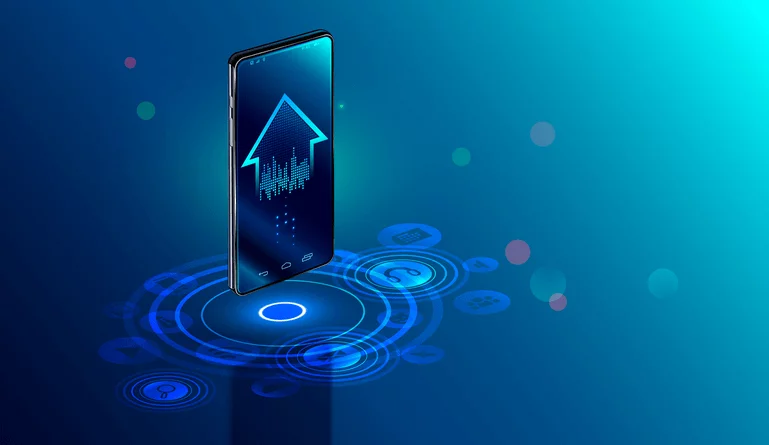Mobile technology has revolutionized the way we communicate, access information, and interact with the world around us. From the early days of basic mobile phones to the sophisticated smartphones of today, mobile technology has undergone tremendous advancements. This article explores the evolution of mobile technology, its impact on society, key innovations, and future trends, highlighting how it continues to shape our daily lives and the global landscape.
Contents
Evolution of Mobile Technology

The Early Days
The journey of mobile technology began in the 1970s with the development of the first generation (1G) mobile networks. These analog systems allowed for voice communication over cellular networks but were limited in coverage and capacity. The first commercially available mobile phone, the Motorola DynaTAC 8000X, was introduced in 1983. It was bulky, expensive, and had a short battery life, but it marked the beginning of a new era in communication.
The Rise of Digital Networks
The 1990s saw the advent of the second generation (2G) mobile networks, which brought significant improvements over their analog predecessors. 2G networks were digital, offering better voice quality, increased capacity, and the introduction of SMS (Short Message Service) for text messaging. This period also saw the development of GSM (Global System for Mobile Communications) standards, which became widely adopted around the world.
The Emergence of Smartphones
The early 2000s marked the transition to third generation (3G) mobile networks, which enabled faster data transmission and supported multimedia applications. This period also saw the rise of smartphones, which combined the functionality of a mobile phone with that of a personal digital assistant (PDA). The introduction of the Apple iPhone in 2007 revolutionized the industry, offering a touch screen interface, a powerful operating system, and access to a wide range of applications through the App Store.
The 4G Revolution
The fourth generation (4G) mobile networks, introduced in the 2010s, brought even faster data speeds, improved network reliability, and the ability to stream high-definition video. Technologies such as LTE (Long Term Evolution) became the standard for 4G networks, providing a significant boost in performance and enabling a wide range of new applications and services.
The Advent of 5G
The latest evolution in mobile technology is the fifth generation (5G) networks, which are currently being rolled out globally. 5G networks offer unprecedented data speeds, ultra-low latency, and the capacity to connect a massive number of devices simultaneously. These advancements are expected to drive the next wave of innovation, enabling technologies such as autonomous vehicles, smart cities, and the Internet of Things (IoT).
Impact on Society

Communication and Connectivity
Mobile technology has fundamentally changed the way we communicate. The ability to make voice calls, send text messages, and access the internet from virtually anywhere has made it easier to stay connected with friends, family, and colleagues. Social media platforms, instant messaging apps, and video conferencing tools have further transformed communication, enabling real-time interaction and collaboration.
Information Access and Learning
The proliferation of mobile devices has democratized access to information. People can now access news, educational content, and a vast array of information at their fingertips. Mobile technology has also revolutionized education, with e-learning platforms, mobile apps, and online courses making education more accessible and flexible.
Economic Opportunities
Mobile technology has created numerous economic opportunities, particularly in developing countries. Mobile banking and payment systems have enabled financial inclusion for millions of people who previously lacked access to traditional banking services. Mobile platforms have also facilitated the growth of e-commerce, gig economy jobs, and digital entrepreneurship, contributing to economic development and job creation.
Healthcare and Well-being
Mobile technology has had a profound impact on healthcare, enabling telemedicine, remote monitoring, and health information dissemination. Mobile health apps and wearable devices allow individuals to track their health metrics, access medical advice, and manage chronic conditions. These innovations have improved healthcare access and outcomes, particularly in underserved areas.
Key Innovations in Mobile Technology
Smartphones and Apps
Smartphones have become indispensable tools in our daily lives, offering a wide range of functionalities beyond communication. The development of mobile apps has transformed how we perform various tasks, from banking and shopping to fitness tracking and entertainment. The app ecosystem continues to grow, with developers creating innovative solutions to meet the evolving needs of users.
Mobile Internet and Connectivity
The evolution of mobile networks from 1G to 5G has significantly enhanced connectivity and data speeds. This progression has enabled a host of new applications and services, from high-definition video streaming and online gaming to IoT devices and smart home systems. The widespread availability of mobile internet has also driven the growth of social media, cloud computing, and mobile-first services.
Wearable Devices
Wearable devices, such as smartwatches, fitness trackers, and health monitors, have gained popularity in recent years. These devices integrate with smartphones to provide real-time data on various health and fitness metrics, enabling users to monitor their well-being and make informed lifestyle choices. Wearable technology continues to evolve, with advancements in sensors, connectivity, and data analytics.
Augmented Reality (AR) and Virtual Reality (VR)
AR and VR technologies have seen significant advancements, driven by improvements in mobile processing power and graphics capabilities. AR applications overlay digital information onto the real world, enhancing user experiences in areas such as gaming, education, and retail. VR creates immersive virtual environments for gaming, training, and entertainment. Both technologies have the potential to revolutionize how we interact with digital content and the physical world.
Future Trends in Mobile Technology

5G and Beyond
The rollout of 5G networks is expected to accelerate latoto in the coming years, bringing faster speeds, lower latency, and greater connectivity. This will pave the way for new applications and services, such as autonomous vehicles, smart cities, and advanced IoT ecosystems. Future developments in mobile technology may include 6G networks, which could offer even higher data rates and new capabilities.
Artificial Intelligence (AI) and Machine Learning
AI and machine learning are increasingly being integrated into mobile devices, enabling more personalized and intelligent experiences. AI-powered features, such as virtual assistants, predictive text, and image recognition, enhance user interactions and streamline tasks. As AI technology advances, we can expect even more sophisticated and context-aware applications on mobile devices.
Internet of Things (IoT)
The IoT continues to expand, with more devices and systems becoming interconnected. Mobile technology plays a crucial role in enabling IoT applications, from smart homes and wearable health devices to industrial automation and smart agriculture. The proliferation of IoT devices will create new opportunities for innovation and efficiency in various sectors.
Enhanced Security and Privacy
As mobile technology becomes more integral to our lives, ensuring security and privacy will be paramount. Future advancements will likely focus on enhancing encryption, biometric authentication, and secure data storage. Additionally, new regulations and standards may emerge to protect user data and maintain trust in mobile technologies.
Foldable and Flexible Displays
Foldable and flexible display technology is an emerging trend in mobile devices. These displays allow for new form factors, such as foldable smartphones and tablets that can be transformed into different shapes and sizes. This innovation promises to enhance the versatility and functionality of mobile devices, offering users more flexible and immersive experiences.
Conclusion
Mobile technology has come a long way since the early days of analog mobile phones. With each new generation of mobile networks and devices, we have witnessed significant advancements that have transformed how we communicate, work, learn, and entertain ourselves. The impact of mobile technology on society is profound, driving economic growth, improving healthcare, and enhancing connectivity. As we look to the future, the continued evolution of mobile technology promises to bring even more innovations and opportunities, shaping the way we live and interact with the world. The journey of mobile technology is far from over, and its potential to drive positive change remains immense.
Read More Article About “Artificial Intelligence: A Comprehensive Exploration“

